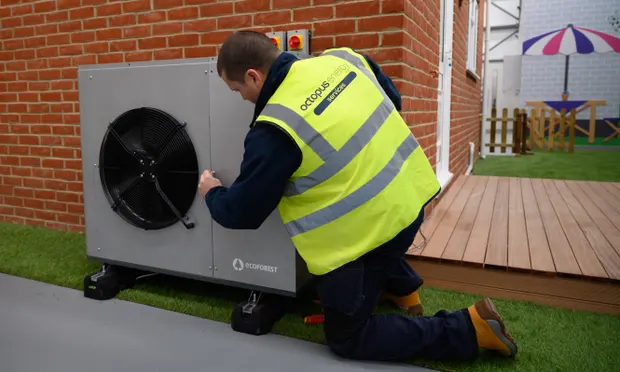The National Infrastructure Commission (NIC) has said that ministers have made little progress in improving the energy efficiency of the UK’s homes even as Russia’s invasion of Ukraine has underscored the need to cut the reliance on gas for home heating.
Recall that the independent infrastructure tsars’ annual report had warned that the progress towards improving the UK’s infrastructure “stuttered further”, despite the need for increased investment to meet its economic and climate goals.
The report took aim at the government’s record on insulating the UK’s draughty housing stock and the sluggish take-up of electric heat pumps to help cut emissions from home heating, even as the UK’s reliance on gas cost the economy billions due to Europe’s energy crisis.
In his reaction, sir John Armitt, the chair of the NIC, said that there was “a significant gap between long-term ambition and current performance”, which required “a change of gear in infrastructure policy”.
“This means fewer low-stakes incremental changes and instead placing some bigger strategic bets, backed by public funding where necessary – after all, the risk of delay in addressing climate change is now greater than the risk of over-correction,” Armitt said.
Read also: Labor agrees to absolute cap on emissions to secure Greens backing
According to reports, despite a government ambition for at least 600,000 heat pumps to be installed annually by 2028, only 55,000 were fitted in 2021, while 1.5m gas boilers were fitted. The NIC blamed insufficient government funding and the absence of key policies for the lack of progress and urged the government to develop a concrete plan.
The NCC noted that the UK remains too reliant on natural gas, which is “a high-cost, high-carbon and insecure source of energy.
“In 2022, the sharp rise in gas prices prompted by Russia’s invasion of Ukraine increased the cost of energy and jeopardised the security of supply. The government is now directly subsidising the energy consumption of households and businesses, setting prices for the average household at £2,500 per year between October 2022 and June 2023,” the report said.
According to the report, the government’s efforts to decarbonise the transport sector have also stalled. Ministers expected 300,000 public electric vehicle charge points to be in place by 2030 but only 37,000 have been installed, the report said.
Story was adapted from the Guardian.
